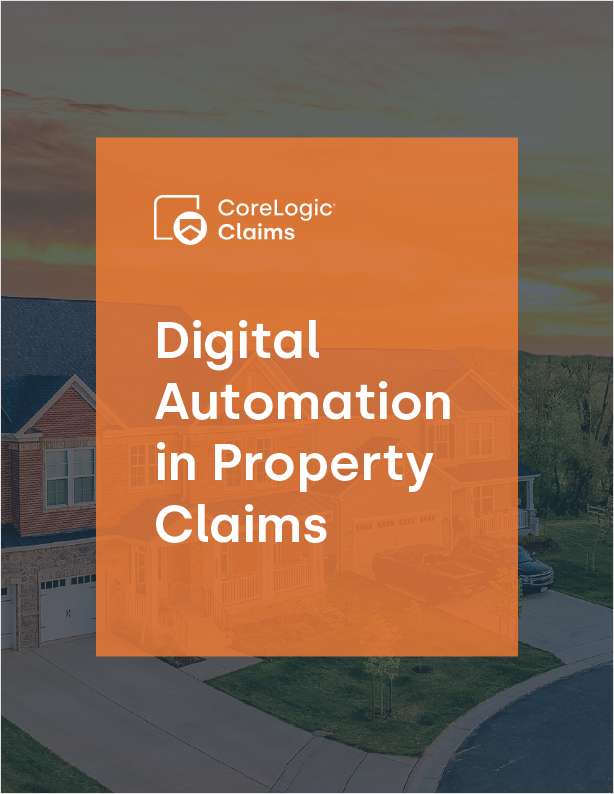It's Time to Permit Voting by Mail in Connecticut
For the sake of safety and our democracy, online voting should be allowed both in June and November in Connecticut's elections.
April 08, 2020 at 01:44 PM
4 minute read
 The protection of electoral democracy in Connecticut during the pandemic onslaught requires a two-pronged strategy: the practicing of social distancing at the polls on election days and the temporary adoption of new methods of remote ballot access for voters. Meeting this unprecedented challenge will require significant changes in current law and practice.
The protection of electoral democracy in Connecticut during the pandemic onslaught requires a two-pronged strategy: the practicing of social distancing at the polls on election days and the temporary adoption of new methods of remote ballot access for voters. Meeting this unprecedented challenge will require significant changes in current law and practice.
Gov. Ned Lamont rightfully began to address the first prong on March 19 when he issued Executive Order 7G to postpone the state's presidential primary election from April 28 to June 2. In so doing, he cited "a compelling interest in reducing the risk of transmission of COVID-19 among voters, poll workers and residents, which risk would be heightened in the settings of indoor polling places and potential lines for voting, especially in polling places such as senior centers, schools, community centers and other public facilities."
In our view, the same compelling interest also justifies adopting a new method of exercising the right to vote both in June and, more importantly, in November.
Connecticut has one of the most restrictive voting laws in the country. Thirty-three states today permit mail-in voting without specifying a reason; five of these allow only votes by mail. Forty states allow early voting, and Delaware will begin allowing early voting in 2022. But Connecticut does not allow early voting and only allows absentee ballots for those unable to vote in person for specified reasons, including: "… (3) his or her illness; (4) his or her physical disability.…" Conn. Gen. Stat. §9-135.
The reasons for these restrictions are derived in part from the state Constitution, which specifies absentee ballots may be allowed for those unable to appear "because of sickness, or physical disability," religion, election service or service in the armed forces. Art. VI, §§7 and 8. Still, the governor may, during a public health emergency, suspend any "statute, regulation or requirement or part thereof, [that] is in conflict with … the protection of the public health," Conn. Gen. Stat. §28-9(a)(1). The Constitution is not a mere statute.
But the statute is stricter than the Constitution. Permitting an absentee ballot only because of "his or her illness," and "his or her physical disability" is not required by the Constitution, which specifies "sickness, or physical disability" generally. As Secretary of State Denise Merrill has observed, eliminating "his or her" from the statute would permit absentee voting due to the pandemic without running afoul of the Connecticut Constitution.
Such a change would further accord with the muscular legal authority set forth in the "Free Suffrage" provision of the Constitution, Article VI, Sec. 4, which mandates that "Laws shall be made to support the privilege of free suffrage."
We believe the public health emergency powers that authorized the governor to modify C.G.S. §9-464 to change the date of the primary elections in 2020 also authorize him to modify C.G.S. §9-135 to change the procedures for utilization of paper absentee ballots in response to the state's "compelling interest" in reducing the risk of illness and in furtherance of the state's constitutional mandate to protect the right to vote.
The governor should also permit an online application process for absentee ballots so voters do not need to appear in person at their town clerk's offices to submit requests.
There may be downsides to mail-in ballots, but Connecticut already imposes strict penalties for absentee ballot fraud—up to $2,000 in civil penalties and up to $5,000 and five years in prison for willful violation. The risk of fraud by a few, moreover, should not require the majority to decide between their lives and the right to vote. Greater absentee balloting, moreover, can and should be combined with carefully planned in-person voting to reduce the risk of contagion.
We call on Lamont to make the decision now. The specter of recent events in Wisconsin, where legal struggles on the eve of the state's primary over in-person voting, along with counting late absentee ballots, have generated an ugly partisan battle resulting in many thousands of people risking infection at limited polling places, underscores the risks of delay.
In Connecticut, registrars of voters will need time to prepare for the increase in mail-in ballots, revisit procedures to prevent fraud and recruit younger, less vulnerable poll workers. Any unanticipated expenses for Connecticut's shift to voting by mail, moreover, may be funded at least in part by the state's share of $400 million in the federal Families First legislation approved in April for states to modernize their voting procedures during the pandemic.
We do not have time to waste. Both our safety and our democracy are at stake.
This content has been archived. It is available through our partners, LexisNexis® and Bloomberg Law.
To view this content, please continue to their sites.
Not a Lexis Subscriber?
Subscribe Now
Not a Bloomberg Law Subscriber?
Subscribe Now
NOT FOR REPRINT
© 2025 ALM Global, LLC, All Rights Reserved. Request academic re-use from www.copyright.com. All other uses, submit a request to [email protected]. For more information visit Asset & Logo Licensing.
You Might Like
View All
ADVANCE Act Offers Conn. Opportunity to Enhance Carbon-Free Energy and Improve Reliability With Advanced Nuclear Technologies

Trending Stories
- 1States Accuse Trump of Thwarting Court's Funding Restoration Order
- 2Microsoft Becomes Latest Tech Company to Face Claims of Stealing Marketing Commissions From Influencers
- 3Coral Gables Attorney Busted for Stalking Lawyer
- 4Trump's DOJ Delays Releasing Jan. 6 FBI Agents List Under Consent Order
- 5Securities Report Says That 2024 Settlements Passed a Total of $5.2B
Who Got The Work
J. Brugh Lower of Gibbons has entered an appearance for industrial equipment supplier Devco Corporation in a pending trademark infringement lawsuit. The suit, accusing the defendant of selling knock-off Graco products, was filed Dec. 18 in New Jersey District Court by Rivkin Radler on behalf of Graco Inc. and Graco Minnesota. The case, assigned to U.S. District Judge Zahid N. Quraishi, is 3:24-cv-11294, Graco Inc. et al v. Devco Corporation.
Who Got The Work
Rebecca Maller-Stein and Kent A. Yalowitz of Arnold & Porter Kaye Scholer have entered their appearances for Hanaco Venture Capital and its executives, Lior Prosor and David Frankel, in a pending securities lawsuit. The action, filed on Dec. 24 in New York Southern District Court by Zell, Aron & Co. on behalf of Goldeneye Advisors, accuses the defendants of negligently and fraudulently managing the plaintiff's $1 million investment. The case, assigned to U.S. District Judge Vernon S. Broderick, is 1:24-cv-09918, Goldeneye Advisors, LLC v. Hanaco Venture Capital, Ltd. et al.
Who Got The Work
Attorneys from A&O Shearman has stepped in as defense counsel for Toronto-Dominion Bank and other defendants in a pending securities class action. The suit, filed Dec. 11 in New York Southern District Court by Bleichmar Fonti & Auld, accuses the defendants of concealing the bank's 'pervasive' deficiencies in regards to its compliance with the Bank Secrecy Act and the quality of its anti-money laundering controls. The case, assigned to U.S. District Judge Arun Subramanian, is 1:24-cv-09445, Gonzalez v. The Toronto-Dominion Bank et al.
Who Got The Work
Crown Castle International, a Pennsylvania company providing shared communications infrastructure, has turned to Luke D. Wolf of Gordon Rees Scully Mansukhani to fend off a pending breach-of-contract lawsuit. The court action, filed Nov. 25 in Michigan Eastern District Court by Hooper Hathaway PC on behalf of The Town Residences LLC, accuses Crown Castle of failing to transfer approximately $30,000 in utility payments from T-Mobile in breach of a roof-top lease and assignment agreement. The case, assigned to U.S. District Judge Susan K. Declercq, is 2:24-cv-13131, The Town Residences LLC v. T-Mobile US, Inc. et al.
Who Got The Work
Wilfred P. Coronato and Daniel M. Schwartz of McCarter & English have stepped in as defense counsel to Electrolux Home Products Inc. in a pending product liability lawsuit. The court action, filed Nov. 26 in New York Eastern District Court by Poulos Lopiccolo PC and Nagel Rice LLP on behalf of David Stern, alleges that the defendant's refrigerators’ drawers and shelving repeatedly break and fall apart within months after purchase. The case, assigned to U.S. District Judge Joan M. Azrack, is 2:24-cv-08204, Stern v. Electrolux Home Products, Inc.
Featured Firms
Law Offices of Gary Martin Hays & Associates, P.C.
(470) 294-1674
Law Offices of Mark E. Salomone
(857) 444-6468
Smith & Hassler
(713) 739-1250












